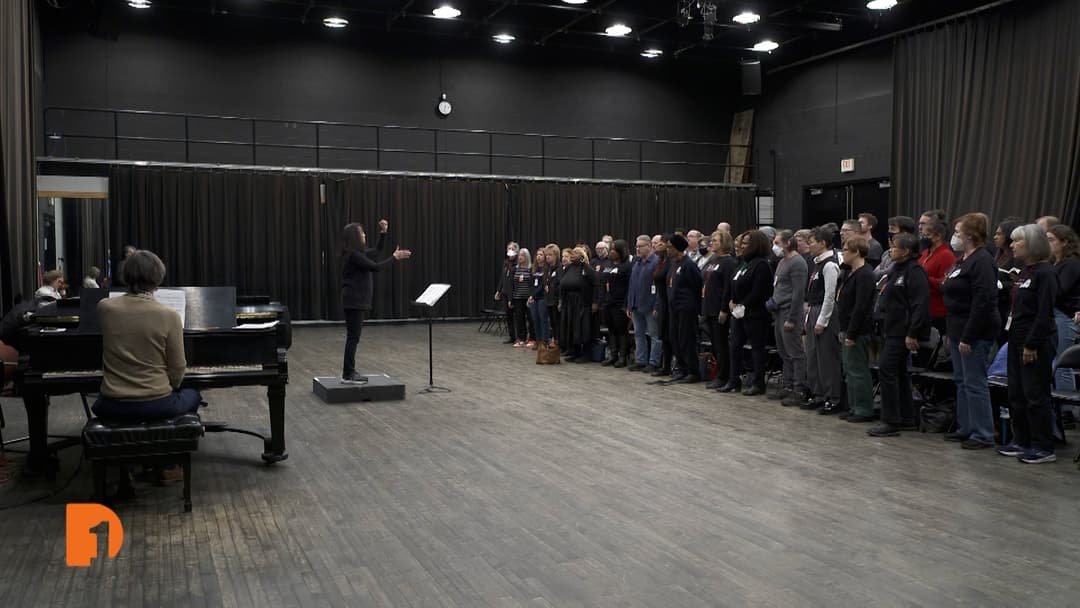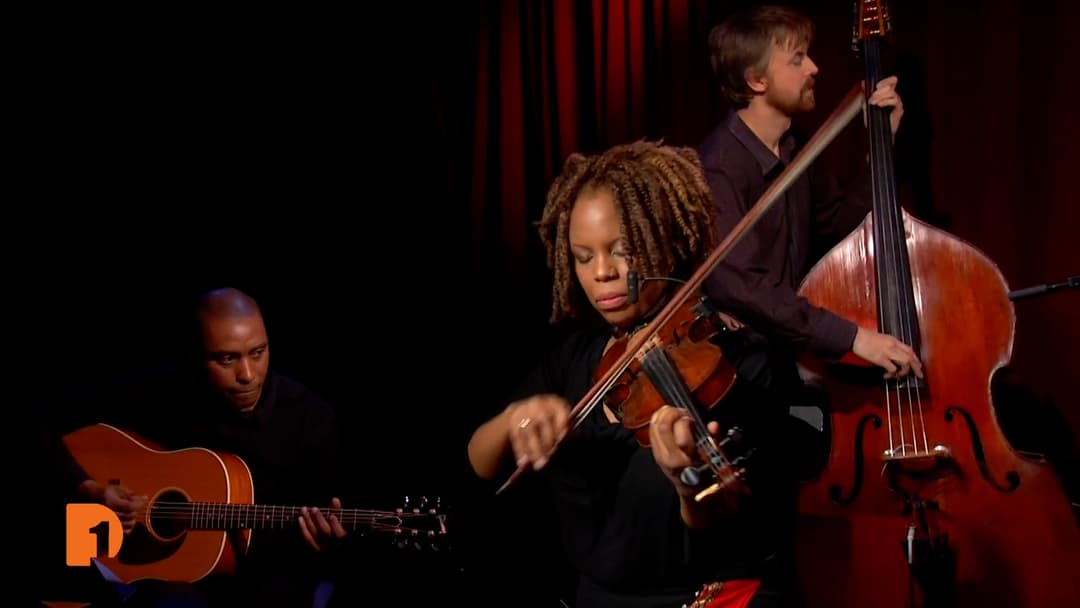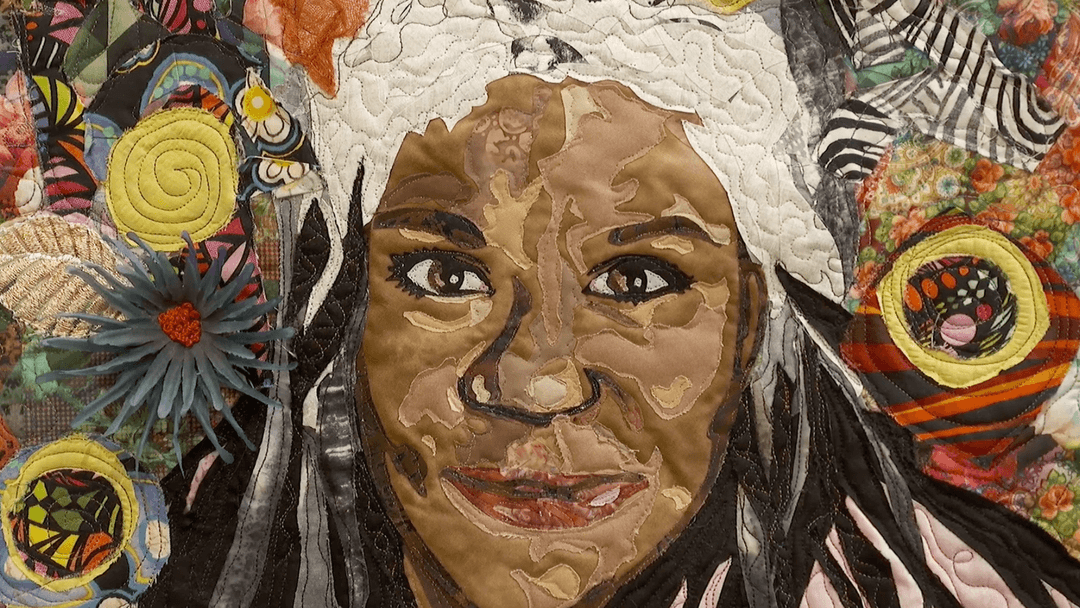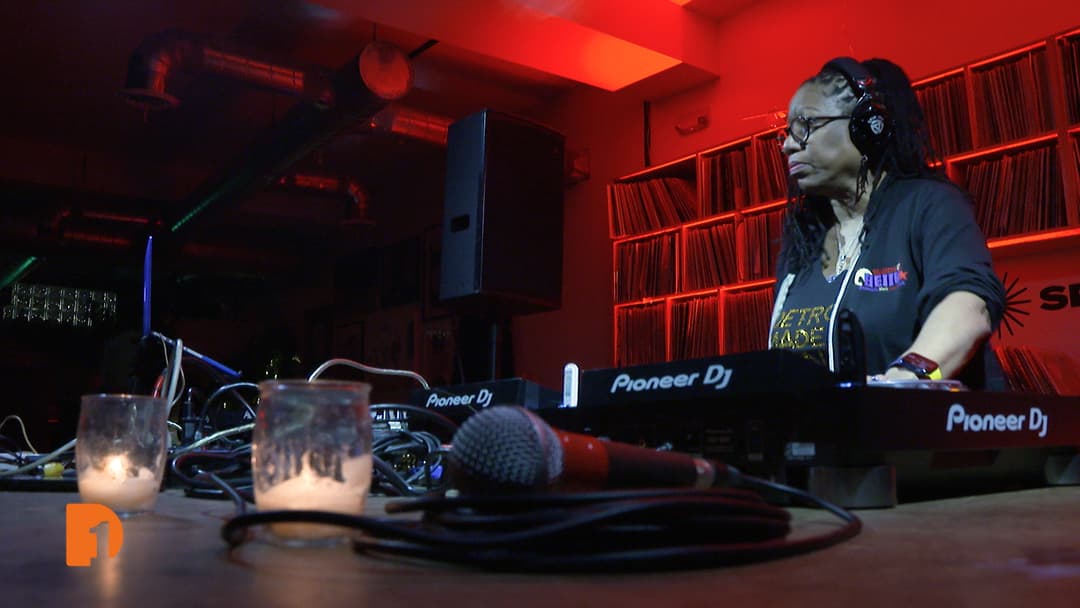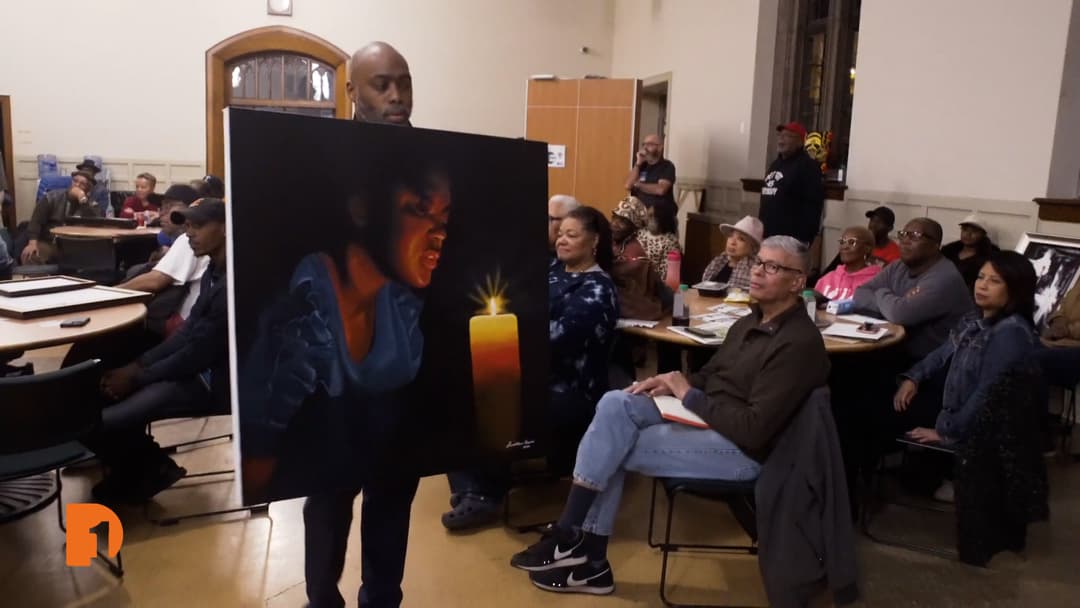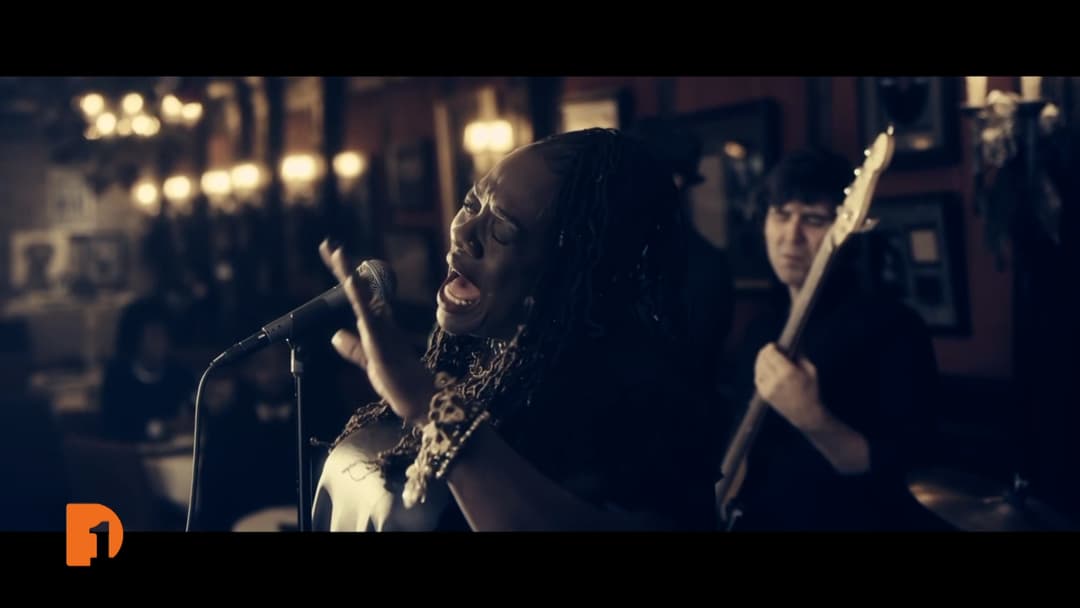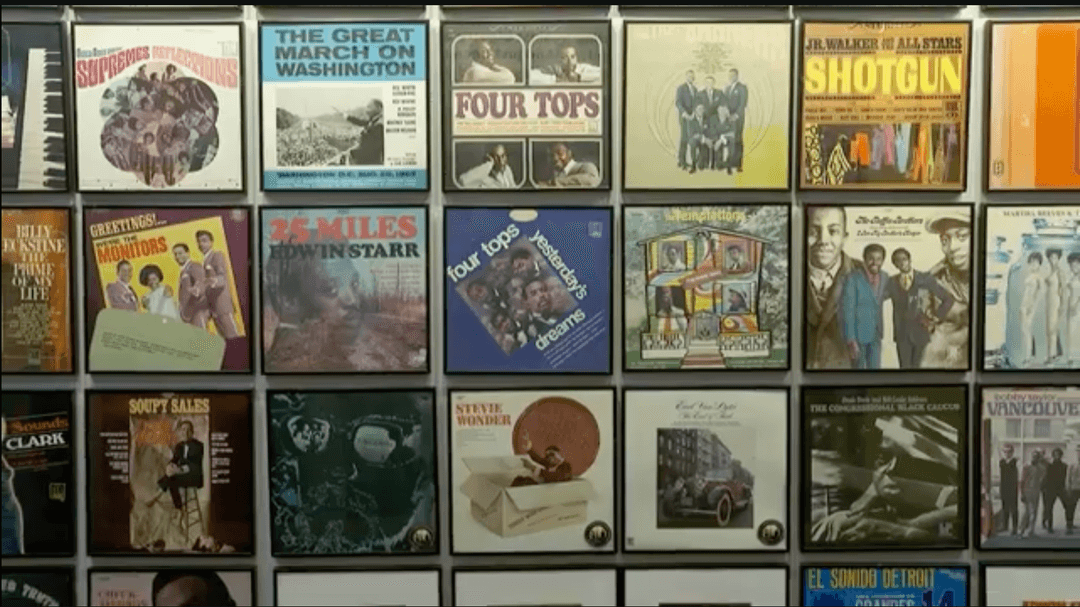Vocalist Joan Ellison Personifies Judy Garland in New ‘Get Happy’ Live Performance
Apr 25, 2022
A new live performance arranged by vocalist Joan Ellison is paying tribute to the iconic American actress and singer Judy Garland’s centennial. As Ellison takes her “Get Happy” show on the road across the nation, singing works from Garland’s original discography, she’s also planning to arrange a follow-up orchestral show featuring works from some of the great female artists of American music.
WRCJ 90.9 FM radio host Cecelia Sharpe sat down with Ellison for a look at Judy Garland’s legacy as an actress, singer and charitable woman, supporting the civil rights movement and other causes for equality. Plus, Ellison takes us behind the scenes to hear how the show got started, what it’s like to recreate Garland’s original tunes and the importance of keeping her music alive in the modern day.
Full Transcript:
Cecelia Sharpe, Producer/Host WRCJ 90.9 FM: Ladies and gentlemen, I would like to welcome to this show, Ms. Joan Ellison.
Joan Ellison, Vocalist: Hello. Great to be here with you.
Cecelia Sharp: Coming up in June marks 100 years.
Joan Ellison: June 10.
Cecelia Sharp: From when Judy Garland was born. And you’re performing across the nation singing the work of Judy Garland. Can you talk about the importance of keeping the breadth of her career and her legacy alive?
Joan Ellison: Well, I mean, I would consider her I mean, certainly right up in that pantheon of one in 500 years, singers and entertainers. And it’s almost hard to find anyone to compare with her because she was so unique. I think there has been a bit of a cottage industry in sort of labeling her as a drug addict, you know, less than she is.
Joan Ellison: But when you go back and you look at her artistry and when you look at just the breadth of her artistic output in so many areas, you know, albums, movies, live concerts and all the songs that were written for her and inspired by her that she originated that have now become, you know, Over the Rainbow really often voted the number one song of the 20th century. You know, she’s just a huge figure in our American cultural life.
Cecelia Sharp: She also had a huge part in love and support causes the civil rights movement, so many causes that she was behind to support equality for people despite the inequality that she was facing as a woman coming up during her time.
Joan Ellison: Yes. She visited children’s hospitals. She supported troops early on from she was, I think, in the sort of the first group of people who did USO shows.
Cecelia Sharp: Can you talk a bit about your Treo? How did that get started?
Joan Ellison: I was looking for a way to distill these orchestrations, you know, Judy Garland’s original orchestrations down into something small enough that it would, you know, work for smaller venues during the pandemic or whatever. I was teaching a lesson to a student who was a grad student at CIM in cello, and I said, Oh, we’re doing Blue Skies. And she said, Oh, you know, I could play a walking base on my cello for this.
Joan Ellison: And I thought, Hmm, that would be interesting. When I heard it happened, I thought, wow, on a cello, you know, you have so much expressive potential and such a huge range. And I thought, oh, could I kind of pick and choose little lines out of the orchestrations and, you know, put it together with the piano and have something that was kind of more than the sum of its parts.
Joan Ellison: So I arranged this whole show for cello and we premiered it last September at the Bop Stop and brought in Shane Chugg, a pianist actually originally from Ohio, who is now in New York. And we did the show, so and then we’re reprising it in Illinois in May.
Joan Ellison: How do you go about restoring the orchestrations?
Joan Ellison: Yeah. So basically Michael Feinstein, who was a trustee of the Judy Garland Heirs Trust, brought me in on this project. And, you know, he’ll send me high-quality scans of her original parts because, you know, her husband, Sid Luft, sold her arrangements.
Joan Ellison: What I’m doing is copying them all into Finale, you know, every single note of every single part. And then sometimes things are taped over or there’s cuts, or there’s something that’s illegible or there’s a completely missing part. And I have to go back to an original recording and try to transcribe it. It’s painstaking. It’s definitely a labor of love. It’s a ton of time, but it’s time travel, too, because, I mean, you get to see these original parts that so many people have played over the years.
Joan Ellison: And I love to actually to look at musician graffiti on the parts like this one that just says, good luck with the little, little face peering up. It was a trombone part on something. I can’t remember which one, but it was one of the really illegible ones that all it said was a little face peering up over the staff and good luck.
I’m just starting to think about looking for arrangements for a follow-up orchestral show, which in its baby infant state is going to be featuring a lot of the great ladies of American popular song. So Judy will be in there, of course, and it would give me a chance to use a lot of her original arrangements that don’t fit into my current orchestral show. But I would like to include all kinds of other wonderful singers.
Cecelia Sharp: Well, Joan, I’d like to say thank you so much for spending time with me today. Do you have any parting words?
Joan Ellison: Well, it’s been such a just a joy speaking with you and getting the word out about Judy. And I would just like to encourage any young women who are thinking of going into music. If you feel that it’s on your path, do it. Don’t let anyone tell you not to. And it can be a really rewarding life.
Subscribe to One Detroit’s YouTube Channel & Don’t miss One Detroit Mondays and Thursdays at 7:30 p.m. on Detroit PBS, WTVS-Channel 56.
Catch the daily conversations on our website, Facebook, Twitter @DPTVOneDetroit, and Instagram @One.Detroit
View Past Episodes >
Watch One Detroit every Monday and Thursday at 7:30 p.m. ET on Detroit Public TV on Detroit Public TV, WTVS-Channel 56.2
Stay Connected
Subscribe to One Detroit’s YouTube Channel and don’t miss One Detroit on Thursdays at 7:30 p.m. and Sundays at 9 a.m. on Detroit PBS, WTVS-Channel 56.
Catch the daily conversations on our website, Facebook, Twitter @OneDetroit_PBS, and Instagram @One.Detroit
Related Posts
Leave a Reply
Your email address will not be published. Required fields are marked*




